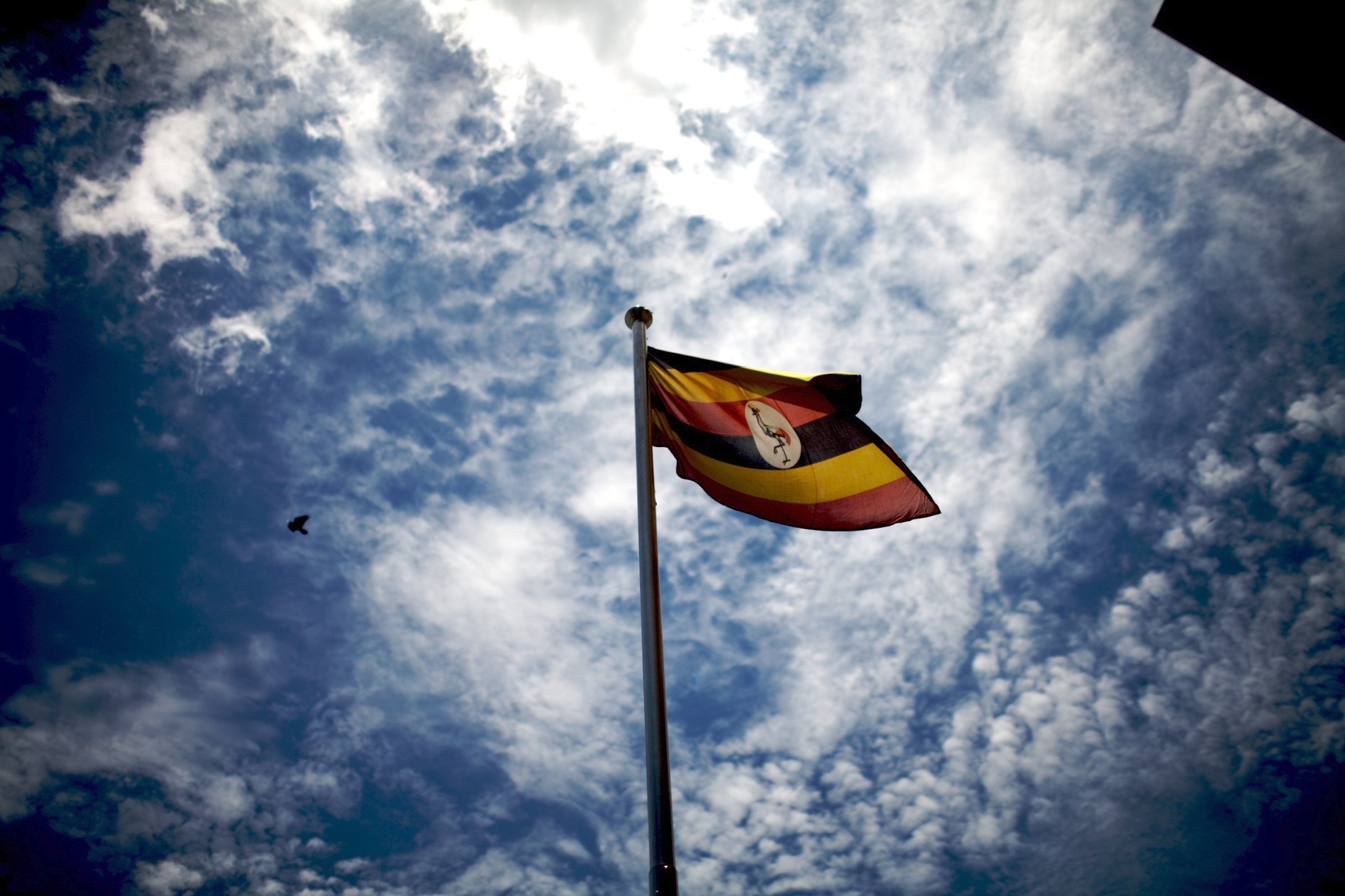A TrialWatch Fairness Report released today concludes that Uganda’s effort to prosecute journalist and filmmaker Moses Bwayo violated his rights to freedom of speech and peaceful assembly.
Authorities charged Mr. Bwayo with unlawful assembly for filming a scene for a documentary about opposition politician Bobi Wine, alleging that Mr. Bwayo’s filming was being “used to subvert or promote subversion to the government.” The scene involved a reenactment of a music video—as Bobi Wine is also a popular singer—with participants donning clothing associated with Bobi Wine’s People Power party and singing a song about injustice. Mr. Bwayo was then arrested (along with others involved in the shoot), subject to arbitrary pre-trial detention and denied his right to counsel during his interrogation by the police. Ultimately, the court dismissed the charges against Mr. Bwayo because the prosecution presented no witnesses. While the court’s decision is welcome, the report gives the proceedings a grade of “C,” explaining that the charges “should never have been brought.”
This case is illustrative of Uganda’s disturbing attempts to silence political opposition and civil society before its presidential elections on January 14. Other journalists covering Bobi Wine have been arrested. And Mr. Bwayo himself was shot in the face with a rubber bullet while covering a convoy transporting Mr. Wine. Members of the global Media Freedom Coalition of governments headed by the UK and Canada have also recently expressed their concern at “reports of attacks and harassment of journalists, including those covering the country’s election campaigns.”
The TrialWatch report, authored by staff at the American Bar Association Center for Human Rights, notes that “it appears that the officers arrested Mr. Bwayo and his associates due to their perceived political affiliation with Bobi Wine” and finds that this “discriminatory intervention” violated Mr. Bwayo’s right to peaceful assembly. The report also notes that the police never specified “what exact type of subversion was at issue” and that witness statements in the case file offered no indication that the group’s acts met the definition of an unlawful assembly. The report concludes that Mr. Bwayo’s prosecution breached his right to freedom of expression because the authorities did not possess a legitimate objective and never articulated the alleged threat that in their view justified restriction of his speech, and because criminal prosecution was neither necessary nor proportionate.
CFJ calls on the Ugandan authorities to refrain from initiating prosecutions intended to suppress political speech and to allow journalists to report freely, particularly in the lead-up to and during the upcoming elections.
Background
Moses Bwayo is a freelance journalist and documentary filmmaker. He and a crew were using the rooftop of a hotel to film performers on the rooftop and street when police from nearby barracks saw the group donning People Power clothing and performing Bobi Wine songs. Despite the fact that there was no sign of violence, the police arrested Mr. Bwayo and others assembled on the rooftop.
Uganda’s Penal Code makes it a criminal offense for three or more persons to assemble “with intent to commit an offence” or “being assembled . . . conduct themselves in such a manner as to cause persons in the neighbourhood reasonably to fear that the persons so assembled will commit a breach of the peace or will by such assembly needlessly and without any reasonable occasion provoke other persons to commit a breach of the peace.” On this basis, Mr. Bwayo was arrested and held for two days, during which time he was interrogated without access to a lawyer. He was then released on police bond (a mechanism that permits the police to release an individual pending a formal bail hearing). When Mr. Bwayo appeared for his formal bail hearing, he was again remanded to custody for two days because the police needed more time to respond to his bail application.
The report finds that:
- The authorities’ conduct during Mr. Bwayo’s initial detention violated his right to counsel under both the International Covenant on Civil and Political Rights (ICCPR) and the African Charter on Human and Peoples’ Rights (African Charter); and
- “Mr. Bwayo’s detention for two days [after his formal bail hearing] violated the prohibition on arbitrary detention” in the ICCPR and African Charter because it was not grounded in one of the lawful bases for pre-trial detention: instead, it was predicated on the stated need of the “prosecution and magistrate . . . [for] more time to respond to Mr. Bwayo’s bail application.” As the report goes on to note, Mr. Bwayo’s “[d]etention was especially egregious given that he had previously been released on bond, during which time he had demonstrated that he posed no risk of flight, of interference with the proceedings, or of recurrence of crime.”
For a full legal analysis of the trial and explanation of the grade that has been provided, please see the Fairness Report.
